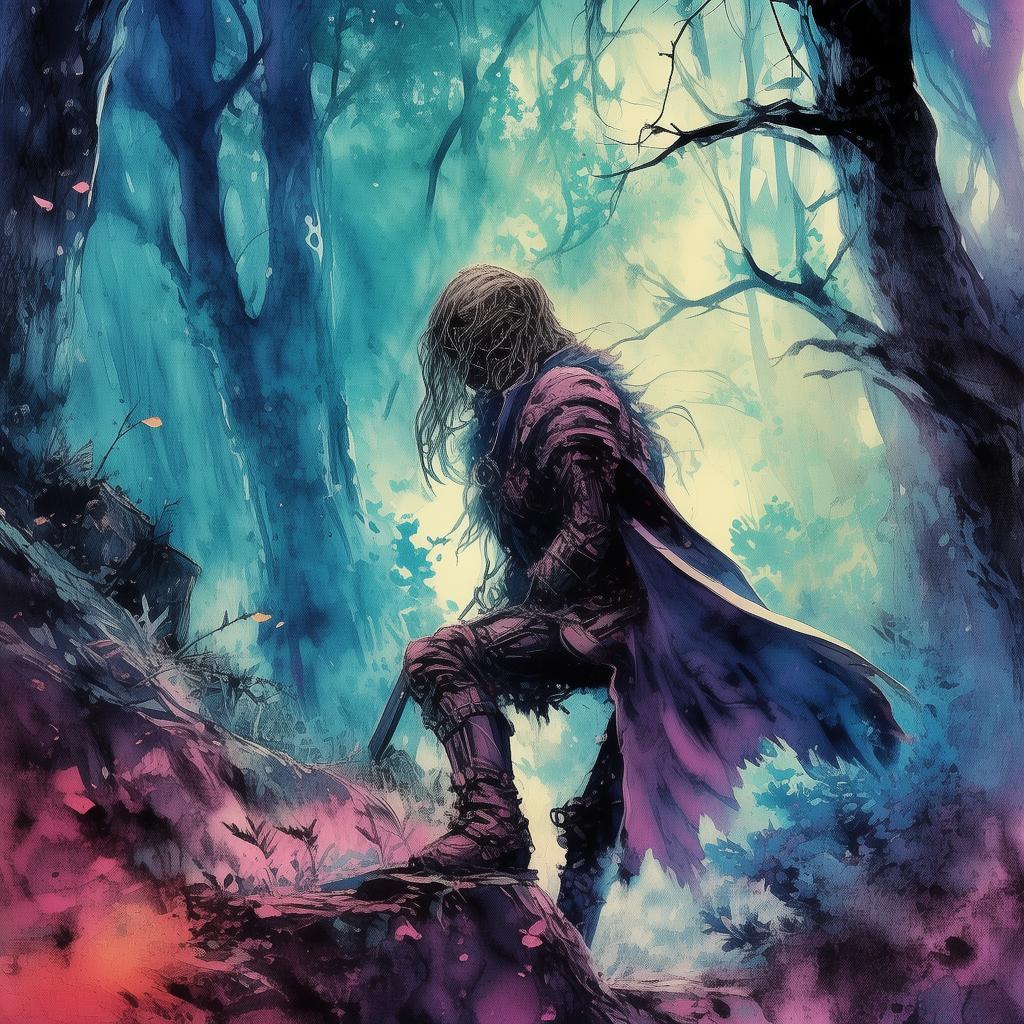The Enchanted Loaf: The Secret of the Nomadic Naan
In the heart of the vast Xinjiang grasslands, where the desert meets the mountains, there lay a legend that was whispered among the nomadic tribes. This legend spoke of a bread so sacred that it could bring prosperity and peace to the people who baked it. This bread was known as the Xinjiang Naan, the Bread of the Nomadic Tribes.
The story begins with a young nomad named Aiman, whose family had been baking the Naan for generations. The recipe was passed down through the lineage, a secret that was guarded with the utmost care. Aiman, however, was not content to simply follow in his family's footsteps. He was driven by a desire to understand the true essence of the Naan and its connection to their nomadic way of life.
One crisp autumn morning, as the sun rose above the horizon, casting a golden glow over the grasslands, Aiman set out on a journey to uncover the secret of the Naan. He traveled far and wide, seeking guidance from the elders of various tribes, all of whom spoke of the bread with reverence and awe.
As Aiman journeyed, he encountered many challenges. The harsh elements of the desert tested his resolve, and the language barriers with the diverse tribes he met were a constant obstacle. Yet, he pressed on, driven by a sense of purpose and the promise of discovery.
One evening, as the stars began to twinkle in the sky, Aiman arrived at the village of the Kizilsu, a tribe known for their mastery of the Naan. The village elder, an elderly woman with eyes that held the wisdom of ages, welcomed him with open arms. She listened to Aiman's story and, with a twinkle in her eye, agreed to share the secret of the Naan.
The elder began to speak of a time long ago when the bread was first created. She spoke of a sacred ceremony where the first Naan was baked, and the gods themselves blessed it with their presence. The bread, she said, was not just a food; it was a symbol of unity, strength, and resilience. It was a connection to the earth and the sky, a reminder of the nomadic way of life that had sustained their people for generations.
The secret of the Naan, the elder revealed, lay not in the ingredients or the method of baking, but in the intention and the spirit with which it was made. The bread was a living entity, imbued with the energy and the hopes of the bakers. It was a bond that tied the people to their ancestors and to the land they called home.
As the elder spoke, Aiman felt a profound connection to the story. He realized that the Naan was more than just a staple of their diet; it was a cornerstone of their culture. It was a reminder of their nomadic roots and a celebration of their enduring spirit.
With the elder's guidance, Aiman returned to his village, ready to share the secret he had learned. He began to bake the Naan with a newfound understanding and a deeper respect for the tradition. His loaves were no longer just bread; they were a vessel of the nomadic spirit, a testament to the enduring power of their culture.
As word of Aiman's discovery spread, the tribes of Xinjiang began to come together, sharing their stories and recipes, and strengthening the bonds that held them together. The Naan became a symbol of unity, a reminder that despite the challenges they faced, their culture was strong and resilient.

In the years that followed, the Xinjiang Naan became a beacon of hope and prosperity for the nomadic tribes. It was a reminder that their way of life was not just a survival strategy, but a way of being that had deep roots in the land and the people.
Aiman, the young nomad who once set out to uncover the secret of the Naan, had become a guardian of their tradition. His loaves of bread were not just sustenance; they were a living legacy, a testament to the enduring spirit of the nomadic tribes of Xinjiang.
The Enchanted Loaf: The Secret of the Nomadic Naan was a story that would be told for generations, a tale of discovery, unity, and the enduring power of culture. It was a story that would inspire the nomadic tribes to continue their journey, to protect their heritage, and to celebrate the beauty of their way of life.
✨ Original Statement ✨
All articles published on this website (including but not limited to text, images, videos, and other content) are original or authorized for reposting and are protected by relevant laws. Without the explicit written permission of this website, no individual or organization may copy, modify, repost, or use the content for commercial purposes.
If you need to quote or cooperate, please contact this site for authorization. We reserve the right to pursue legal responsibility for any unauthorized use.
Hereby declared.









